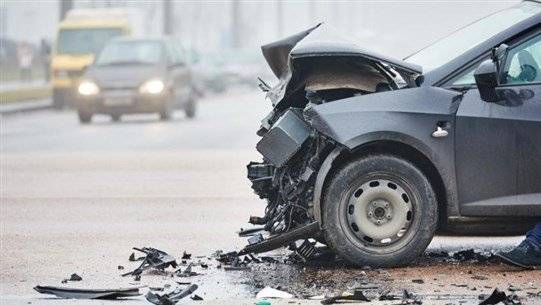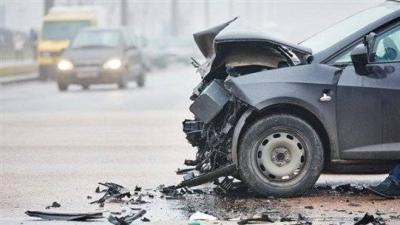It feels like a genocide following the Lebanese on their roads; 170 victims have resulted from traffic accidents in Lebanon up to July 2022, and the unfortunate count has not ended. The year 2020 witnessed 410 victims and 4,174 injured, while 2021 saw 371 deaths and 3,841 injuries despite the pandemic. These numbers are exceedingly high when measured against the country's area and population. Deadly accidents, trucks sowing death on the roads, and drivers acting irresponsibly - should we hold the state accountable as we always do, or should we reflect on ourselves to understand where the deadly danger lies?
During a forced stop by the coastal highway, a colleague observed the passing motorists on this vital artery, reflecting on their faces and concerns as they drove. His keen observation revealed that nine out of ten drivers were distracted by their phones, with quick, hurried glances at the road ahead. One driver caught his attention more than others, as she managed two phones at once. Many faces appeared absent, seemingly not seeing the road. Have people become their own enemies, indifferent to their lives, leaving them prey to fatal traffic accidents? Or is it unjust to hold individuals accountable for deadly roads that devour lives under the cover of darkness and light, with predatory trucks that suffer from neglected maintenance?
"It is a tragic reality," says Ziad Aql, president of the YASA association, noting that July peaked with 40 fatalities and 210 injuries, with some risking death due to severe injuries. July, in particular, witnessed deadly truck accidents despite the overall decrease in traffic incidents due to rising gasoline prices and reduced car use. This reality is nearly out of control as trucks turn into ticking time bombs, threatening lives on the roads at any moment. There is no oversight from any party, and there is significant failure from security forces in enforcing traffic laws and ensuring compliance. Many trucks do not adhere to legal weight limits, and their owners neglect necessary maintenance due to high costs. The mechanical inspection is absent, "destroyed" by politics and personal interests, leading to a lack of oversight on the condition of trucks and their fitness for the roads, thus turning them into deadly vehicles, as evidenced by a truck rollover on the Metn highway caused by brake failure, according to a civil defense report. The weighing scales that previously monitored truck loads are also absent from main roads, while drivers traverse long distances on poorly maintained roads filled with potholes and lacking lighting.
A "volatile cocktail" impacts everyone uniformly—truck drivers, car drivers and their passengers, motorcyclists, and pedestrians. The incident in Arsal, which claimed the lives of eight members of one family due to a truck laden with 40 tons of stones overturning onto their car and another truck rollover on the Metn highway colliding with several vehicles, injuring three, serve as bloody examples of the lurking danger. "We have issued numerous calls to all road users, stressing the importance of adhering to traffic laws and performing necessary vehicle maintenance to ensure they are fit to be on the roads. We have also addressed truck owners specifically to cultivate self-awareness and ensure their trucks are in good condition while we await the state to wake and enforce traffic laws, in order to safeguard their lives and those of their loved ones. We continually urge youth to avoid speeding and phone use while driving, hoping that we can contribute to making August and all months safer on the roads."
YASA also called on the Minister of Public Works to work on maintaining the iron barriers on the bridges over main roads, which cause continuous accidents, especially concerning motorbikes. Just two hours after the call, one of these barriers led to a truck falling from the Nahr al-Maut bridge, resulting in three injuries, indicating that the problem threatens to claim more lives and cause further traffic disasters. In the same call, they urged the Minister of Interior to reinstate mandatory inspections for vehicles and trucks in particular, so that the deadly accidents witnessed in July serve as a lesson to prevent more loss of life.
What YASA, along with the Traffic Control Room, warns about is confirmed by traffic experts in Lebanon, albeit from a different perspective. Traffic accidents requiring an expert's presence have significantly decreased, with the involvement of traffic experts dropping by 60%, as certified expert Eli Rashid confirmed to "Nidaa al-Watan." He noted that experts used to assess four to five traffic accidents daily, whereas now it does not exceed one or two due to reduced car use resulting from high gasoline prices and the living crisis, as well as the additional reason that many cars currently lack insurance due to high premium costs, leading car owners to avoid contacting an expert in the event of an accident. However, Rashid does not deny that accidents have increased on highways and main roads, and the overall rates of deaths and injuries have risen.
When asked about the reasons for traffic accidents currently witnessing in Lebanon and whether a ranking table could be created, the expert responded that new factors have emerged affecting traffic accidents, the first being the motorcycles used by delivery workers, which have multiplied. These riders cause confusion for drivers as they weave irregularly between vehicles, leading to incidents that may not harm the car but are always dangerous or fatal for the motorcyclist. It's important to acknowledge riders transporting entire families on their bikes, posing risks to themselves and drivers. Moreover, insurance companies no longer cover hospital admissions for the injured in accidents, providing only minimal coverage.
Another significant cause of accidents is the use of mobile phones while driving, especially among young, inexperienced female drivers, who often get distracted by their phones or makeup, lacking sufficient experience to control their cars or appropriately gauge the time needed to stop when using brakes, leading to minor accidents. To this source of distraction, a new factor emerges today: the mental distraction most Lebanese experience while driving, stemming from psychological pressures due to challenging life circumstances.
Nevertheless, speeding remains the primary cause of serious or fatal accidents. When combined with deteriorating road conditions, neglect in maintenance and lighting, and even water drainage issues, vehicles, many of which suffer from lack of maintenance, become mobile coffins putting their drivers and passengers at risk of death at any moment. The risk factors multiply at night after outings, when drivers, particularly young ones, may have overindulged in drinking, rendering them unable to control their vehicles and turning them into a looming danger to themselves and others. At this point, it must be reiterated that Lebanon's roads are not conducive to high speeds; when vehicles exceed a certain speed, they become susceptible to accidents regardless of the driver's skill, as Rashid confirms.
Lebanon lacks an authoritative body for traffic. Numerous factors lead to accidents, but who learns from them? Where are the annual or quarterly reports that identify causes and work on addressing weaknesses? Now, more than ever, interventions seem absent; neither the Ministry of Public Works and Transportation, the Council for Development and Reconstruction, nor the municipalities can perform the minimum maintenance on the roads, nor can the Ministry of Energy illuminate them. The Traffic Control Room seems to be in a stupor, unable to fulfill its duties, having once been an example of effective management in its domain. The traffic lights, electronic boards, and cameras are non-functional, and accident reports are neither studied nor analyzed for preventive measures. Similarly, mechanical inspections are nonexistent as their essential role in vehicle safety has faded. The security forces are also absent from the roads, having recently issued some citations without any tangible effect on repressing violations, enforcing traffic laws, or monitoring vehicle conditions to prevent accidents.
It seems that there is no traffic authority in Lebanon today, leaving citizens prey to accidents without self-regulation or official oversight and lacking insurance coverage that has become minimal, alongside extreme difficulties in securing medical costs in case of injuries. Only specialized associations like YASA and others voice the outcry, and only traffic experts continue to submit their reports to insurance companies or police stations, or courts in case of injuries or fatalities; however, the necessary interventions are completely absent.
So, Lebanese people, beware of roads lurking to harm you—be vigilant and cautious to conserve your lives from danger... for there is no official authority to care for you nor anyone to rescue you from disaster if it occurs...




